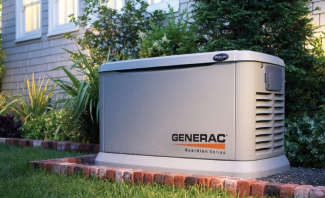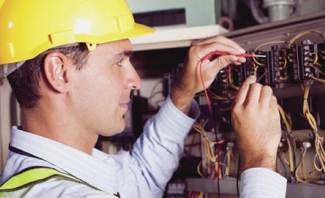Generator Repair: DIY or Professional? Find the Best Option for You.
Choosing between fixing your generator yourself or hiring a pro can be overwhelming. But making an informed decision is crucial for a job well done. While DIY repairs may save you money, they could end up costing you more if not done right. On the other hand, professional repairs guarantee a job well done but come with a price tag that may be out of reach for many homeowners. In this blog post, we’ll delve into both options and share our expert advice on the best choice for locals facing generator repair projects.
Unraveling Generator Repair: Types and Levels of Complexity
Discover the different types of generator repairs and their varying levels of complexity.
Generator repairs can be classified into several types based on the nature of the issue and the complexity of the fix. Common types of repairs include electrical, mechanical, fuel system, and control system repairs.
Electrical repairs involve resolving issues with the generator’s electrical components, such as wiring, alternator, and voltage regulator. These repairs require advanced technical knowledge and are moderately complex.

Mechanical repairs tackle problems related to the generator’s mechanical systems, such as the engine, cooling system, and transmission. These repairs are more intricate than electrical repairs and may necessitate specialized tools and expertise.
Fuel system repairs address problems with the generator’s fuel delivery system, such as fuel filters, pumps, and injectors. The complexity of these repairs can vary depending on the issue’s source. Generally, they are moderate to high in complexity as they deal with flammable substances and require precise adjustments.
Control system repairs are related to the generator’s control and monitoring systems, including the governor, control panel, and alarms. These repairs can range from minor adjustments to complete system overhauls and require a high level of technical expertise and experience.
The complexity of generator repairs varies greatly, depending on the specific problem. Consulting an experienced professional before attempting repairs on your own is essential to avoid costly mistakes and potentially hazardous situations.
Save Money, Learn New Skills, and Resolve Issues Quickly with DIY Generator Repairs
Fixing your generator yourself comes with numerous benefits that you can’t ignore. First and foremost, it’s a great way to save money. Avoid expensive professional repair services and only pay for the necessary replacement parts. Say goodbye to hefty labor charges.
But DIY generator repairs offer more than just financial savings. They provide an opportunity to expand your skillset. By learning how to fix a generator, you’ll gain a deeper understanding of mechanics and electricity. This newfound knowledge can be applied to future projects in your home or workshop.
Not only that, but DIY repairs allow you to resolve issues in no time. No more waiting around for days or weeks for a technician. Take matters into your own hands and have your generator up and running almost immediately. This is especially crucial during power outages or emergencies where a working generator is a lifeline.
It may require some effort, but the benefits outweigh the drawbacks. So, when your generator needs repairs, don’t hesitate to embrace the DIY world. You’ll be amazed at your capabilities and newfound knowledge.
The Risks and Costs of DIY Generator Repairs Unveiled
Thinking about tackling generator repairs on your own? Think again. While it may seem like a cost-effective option, there are important factors to consider that could put your safety, finances, and property at risk.
Firstly, there are serious safety risks involved. Generators operate at high voltages and mishandling them can lead to disastrous consequences such as fires, electrocution, or even explosions. Without the necessary expertise and safety equipment, attempting DIY repairs is a gamble you shouldn’t take.
Secondly, the lack of expertise in generator repair can cause more harm than good. Temporary fixes may seem like an easy solution, but they can result in further damage and costlier repairs in the long run. Improper repairs can lead to more serious issues that will require professional intervention or even the replacement of your generator.
Lastly, the costs of DIY repairs can surpass what you would spend on professional help. Temporary fixes often fail to address the root cause of the problem, leading to frequent breakdowns and escalating repair expenses. On top of that, unauthorized repairs may not be covered by insurance policies, leaving you to foot the bill for any damages.
To ensure your safety, protect your property, and avoid expensive mistakes, it’s best to entrust generator repairs to professionals.
Why You Should Choose Professional Generator Repair Services
When it comes to keeping your backup power source in top shape, professional generator repair services are the best choice. With their expertise and experience, they can accurately diagnose and fix any issue, saving you from costly repairs in the future.
One of the biggest advantages of professional repair services is their access to high-quality replacement parts. By using genuine parts, they ensure that your generator performs optimally and lasts a long time.
Furthermore, professional generator repair services offer a comprehensive range of services to meet all your needs. From routine maintenance to major repairs and replacements, they have the skills and knowledge to handle any level of repair or maintenance.
Most importantly, professional repair services provide peace of mind. Knowing that your backup power source is in good hands gives you the reassurance that your business or home will stay operational during power outages. With their prompt and efficient service, you can trust that any generator issues will be resolved quickly.
Investing in professional generator repair services is a smart choice for businesses and homeowners. With their expertise, high-quality parts, comprehensive services, and peace of mind, they ensure that your backup power source functions optimally at all times.
The Downsides of Professional Generator Repair Services
Discover the drawbacks of choosing professional repair services for your generators. Brace yourself for steep labor costs, long waiting times for quotes and services, and a lack of control over repair timelines.

One of the biggest drawbacks is the hefty price tag attached to labor. Repair centers charge high hourly rates, and extensive repairs can quickly inflate the final bill. On top of that, you may also face additional fees for replacement parts and components, further driving up the costs.
Prepare to wait patiently for quotes and repair services. The process typically involves a thorough inspection before an estimate is provided, which can take days or even weeks depending on the center’s workload and parts availability. This can be incredibly frustrating, especially for businesses or facilities that rely heavily on their generators.
The lack of control over repair timelines can be a major headache. You’re at the mercy of the repair center’s schedule, meaning you may have to wait for work to begin. Additionally, you may be left in the dark throughout the repair process, unsure of the status and completion time.
Professional generator repair services can be expensive, time-consuming, and frustrating. However, considering their expertise, they may still be the best option in certain cases. Carefully weigh the pros and cons before making your decision.
Finding the Perfect Balance: How to Choose Between DIY & Professional Generator Repair Services
Ensure the longevity and safe operation of your generator by striking the perfect balance between DIY repairs and professional services. But how do you choose the right contractor? Don’t worry, we’ve got you covered with expert tips to help you make an informed decision.
- Start with Research: Research is key when looking for a reliable generator repair contractor. Ask for recommendations from friends, family, or colleagues who have had their generators serviced. You can also use online directories or search engines to find reputable local contractors. When evaluating candidates, focus on their experience, training, certification, and customer feedback.
- Check Customer Reviews: Once you have a shortlist of potential contractors, dive into customer reviews. These reviews can give you valuable insights into the level of service, work quality, and overall customer satisfaction provided by each contractor. Pay attention to reviews specifically related to generator repair and maintenance. Also, check the contractor’s rating with the Better Business Bureau or similar organizations to see if they have a good track record.
- Know When to Call a Pro: While DIY repairs may seem tempting, it’s important to know when it’s best to call in a professional. Electrical and mechanical issues, as well as lack of knowledge or tools, can make DIY repairs risky and dangerous. When dealing with damaged or malfunctioning components, or if you’re unsure about performing a repair, it’s always better to seek professional assistance to ensure safety.
Balancing between DIY and professional generator repair services is crucial for the ongoing safety and reliability of your equipment. By conducting thorough research, reading customer reviews, and knowing when to call a pro, you can make sure your generator is in good hands. Don’t take chances with your equipment, make an informed decision for years of reliable operation.
Make the right choice when it comes to repairing your generator. Whether you go for DIY or professional services, it can be a tough decision. But don’t worry, with the right knowledge, you can ensure a successful repair without breaking the bank. Take the time to research and consider all your options, weighing the costs of generator repairing and consequences. And remember, there are plenty of resources available online and offline to help you keep your generator running smoothly. So make an informed decision and keep your equipment in top shape.
https://www.google.com/maps?cid=3969260459347426251
